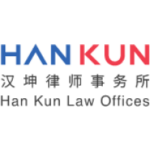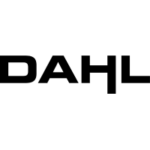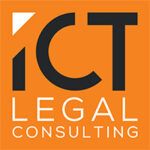-
What are your countries legal definitions of “artificial intelligence”?
In the absence of a specific national definition of “artificial intelligence” (“AI”) the applicable definition in France is derived from the AI Act, which will come into effect 20 days after its now imminent publication in the Official Journal of the European Union and be fully implemented by May 2026.
According to this legislation, an “AI system” is defined as a machine-based system designed to operate with various levels of autonomy and adaptability after deployment. It is capable of inferring, based on the data it receives, how to generate outcomes such as predictions, content, recommendations, or decisions that can influence physical or virtual environments.
Initially proposed by the European Commission in 2021, the definition has evolved to align with the OECD’s definition, which characterizes AI as an automated system capable of making predictions, recommendations, or decisions impacting real or virtual environments, designed to operate autonomously.
-
Has your country developed a national strategy for artificial intelligence?
Under the France 2030 Program, inspired by the 2018 Villani Report, France has launched an ambitious national AI strategy aimed at driving innovation, ensuring responsible data usage, developing AI talent, and promoting ethical AI practices.
Launched in 2018 with €2.5 billion from the France 2030 plan, it targets positioning France as a global AI leader by 2030. The initial phase (2018-2022) allocated €1.5 billion to enhance research, establish AI institutes, fund doctoral programs, and improve computing infrastructure like the Jean Zay supercomputer. France now leads Europe in AI labs and has seen a surge in AI startups.
The second phase (2021-2025), launched in November 2022 with €560 million, focuses on expanding AI skills and applications, training 3,700 AI students annually by 2025, and accelerating R&D in areas like trustworthy and generative AI.
Initiatives include the “IA Booster France 2030” program for SMEs and a €500 million AI Cluster to strengthen national centers and upgrade infrastructure. France also plans to co-finance a new exascale supercomputer with the EU by 2024-2025.
A March 2024 report from the French Government’s AI commission, titled “AI: Our Ambition for France,” outlines 25 recommendations, including €27 billion in AI investments over five years to compete with the USA. The report also emphasizes achieving strategic autonomy for data centers and enhancing domestic computing capabilities.
-
Has your country implemented rules or guidelines (including voluntary standards and ethical principles) on artificial intelligence? If so, please provide a brief overview of said rules or guidelines. If no rules on artificial intelligence are in force in your jurisdiction, please (i) provide a short overview of the existing laws that potentially could be applied to artificial intelligence and the use of artificial intelligence, (ii) briefly outline the main difficulties in interpreting such existing laws to suit the peculiarities of artificial intelligence, and (iii) summarize any draft laws, or legislative initiatives, on artificial intelligence.
Existing Laws and Rules: Currently, France has limited specific regulations concerning AI, with notable exceptions such as criminal liability of autonomous car manufacturers in accidents involving AI systems, addressed by Order No. 2021-443 of April 14, 2021. This regulation defines responsibilities for both the AI system and human operators in autonomous mobility services.
In the absence of dedicated legislation, traditional legal principles like liability for defective products, vicarious liability, and liability for damages caused by things may apply to AI cases. However, the unique characteristics of AI, such as autonomy and complexity, pose challenges for applying conventional liability rules.
European Initiatives on AI: Efforts to regulate AI are primarily focused at European level to promote a unified approach and harmonize regulations. The regulatory landscape in France will be shaped by the AI Act which establishes rules and standards for AI systems in specific sectors and addresses fundamental rights and protection from discriminatory or harmful AI practices. Additionally, two directives—the Product Liability Directive (PLD, adopted in early 2024) and the proposed AI Liability Directive (AILD)—focus on adapting liability regimes to accommodate AI’s unique characteristics, facilitating the burden of proof, and establishing a causal link in AI-related cases.
Guidelines: Pending the implementation of these regulations, guidelines have been developed at both European and national levels to establish ethical standards and principles. The EU’s High-Level Expert Group on AI published “Ethics Guidelines for Trustworthy AI” in 2019, emphasizing transparency, accountability, and robustness. These guidelines complement France’s national efforts, including recommendations and guidelines issued by governmental bodies. For instance, reports from the French Council of State and the Assemblée Nationale in 2022 and 2024 respectively addressed AI’s impact on public services and generative AI, proposing guidelines for trustworthy AI and recommendations for AI-related legal issues.
-
Which rules apply to defective artificial intelligence systems, i.e. artificial intelligence systems that do not provide the safety that the public at large is entitled to expect?
In France, liability rules for defective products primarily stem from EU Directive 85/374/EEC of 25 July 1985. which covers movable goods failing to meet safety standards, including those integrated into other products or structures. Although AI systems are not explicitly mentioned, they can potentially cause harm when integrated into products. However, the current framework does not fully account for AI-related defects, lacking specific provisions for liability related to development risks and challenges in identifying responsible parties, primarily focusing on product producers.
To address these gaps, the European Commission proposed amending Product Liability Directive 85/374/EEC to explicitly include AI systems and AI-enabled goods as “products.” Recently adopted by the European Parliament on 13 March 2024, the revised Product Liability Directive (PLD) extends coverage to AI systems. It removes the EUR 500 damage threshold, introduces discovery mechanisms, presumptions to ease burden of proof, and expands compensable damages to include losses by non-professional data subjects. Additionally, EU-based businesses are now liable for damages from defective products, even for online purchases outside the EU.
In the meantime, and overall, the existing legal arsenal provides some mechanisms to address the consequences of a faulty AI but further refinements and adaptations remain necessary. Liability concepts such as, “fault-based liability” and “liability for things” can also apply. The General Data Protection Regulation (GDPR) can also be invoked in case of data breaches and privacy violations related to AI.
-
Please describe any civil and criminal liability rules that may apply in case of damages caused by artificial intelligence systems.
Regarding bodily or material harm caused by a faulty AI, liability concepts such as the special liability for defective products, “fault-based liability” and “liability for things” can apply. In the absence of specific regulation, there is no inherent barrier preventing the application of common law civil liability regimes to address liability issues related to damages caused by AI systems in France. These mechanisms are rooted in principles of fault, causality and harm, and form the backbone of legal recourse for addressing AI-related damages.
Current legal frameworks already provide some mechanisms to address liability for damages caused by AI systems. For example, in case of personal data leak, GDPR can be invoked, awarding a right for data subjects to seek compensation for damages. Further, training generative AI systems using data collected from the internet may potentially violate intellectual property rights, generate defamatory or disparaging content, or infringe upon the protection of personal data. It is also worth noting that French law prohibits clauses limiting liability for bodily injury – a consideration particularly relevant given the potential physical risks associated with AI technologies.
-
Who is responsible for any harm caused by an AI system? And how is the liability allocated between the developer, the user and the victim?
Under the classic tort (non contractual) liability regime, the person responsible for damage is determined based on the fault that caused the harm. This fault can be attributed to the supplier, user, or any other economic operator in the chain. And if multiple parties contribute to the damage, they are held individually liable for their respective share. In cases where determining individual responsibility is impossible, joint and several liability may be imposed. The victim’s own fault or events such as force majeure may partially or completely absolve the party responsible for the damage.
Under the Directive 85/374/EEC regime for defective products, as applied in France, liability for damage caused by an AI system due to design defects typically falls on the producer or developer. If the product is imported from outside the EU, the importer within the EU is also considered liable. If none of these parties can be identified, the seller may assume responsibility. The revised PLD, effective from March 13, 2024, mandates that a business based in the EU always assumes liability for defective products, including those purchased online from outside the EU.
Specifically, in the context of autonomous cars under Order n°2021-443 dated April 14, 2021, the manufacturer bears criminal liability if an accident occurs while the vehicle operates in automatic mode.
In other no-fault liability regimes, such as those involving things, persons, or animals, responsibility typically rests with the owner or custodian of the entity involved.
-
What burden of proof will have to be satisfied for the victim of the damage to obtain compensation?
Typically, civil liability requires the fulfilment of three conditions: fault, damage, and a causal relationship between the fault and the damage. The burden of proof usually rests on the victim.
In cases involving defective products, fault is replaced by the presence of a product defect, which arises when the product fails to meet expected safety standards. It is the victim’s responsibility to prove the defectiveness of the product and establish the causal connection to the damage. No presumption of liability exists within this framework.
In a no-fault liability regime, the victim must demonstrate that an incident resulted from a thing, person, or animal, and establish the causal link between that incident and the damage. Furthermore, to hold the responsible party liable, a relationship between the guardian and the thing, person, or animal must be established. Presumptions have been created by law and case law to facilitate the determination of liability, but none apply to AI-related damages yet.
-
Is the use of artificial intelligence insured and/or insurable in your jurisdiction?
Currently, there is no specific insurance coverage tailored for the use of AI. However, traditional insurance policies such as professional indemnity, civil liability, cybersecurity, product liability, and directors’ and officers’ liability can be customized to address the risks associated with AI systems by providing extended coverage.
-
Can artificial intelligence be named an inventor in a patent application filed in your jurisdiction?
The French Intellectual Property Office (INPI) has not yet rendered a decision regarding the eligibility of an AI to be designated as an inventor in French patent applications. However, this stance appears inconsistent with the INPI guidelines, which stipulate that the inventor must be a “natural person,” and Article R. 612-10 of the French Intellectual Property Code, which mandates the inclusion of the “surname, first name, and domicile of the inventor.”
Moreover, at the European level, the 2024 EPC Guidelines have been updated to explicitly state that a designated inventor must be a natural person, and this requirement will be rigorously assessed by the office. These revisions stem from the ruling in case J8/20 (DABUS), where the Legal Board of Appeal concluded that an AI cannot be designated as an inventor. This decision aligns with similar determinations made by numerous jurisdictions, including the recent judgment by the UK Supreme Court in Thaler v. Comptroller-General of Patents, Designs and Trademarks.
-
Do images generated by and/or with artificial intelligence benefit from copyright protection in your jurisdiction? If so, who is the authorship attributed to?
French courts have not yet ruled on whether images generated by AI benefit from copyright protection, but this seems unlikely as only original creations can be copyright-protected. First, the creation criterion seems to require human intervention: the French Supreme Court ruled that legal entities cannot be authors, implying that only natural persons can (Cass. civ. 1, 15 January 2015, 13-23.566). Second, the originality criterion requires the work to reflect the imprint of the author’s personality, which would exclude creations generated by machines.
Conversely, images generated with the assistance of artificial intelligence may arguably benefit from copyright protection if there is a genuine human creation that goes beyond mere instructions to an AI (e.g. the image generated by the AI is reworked or integrated into another work). If the final image is original, it would be eligible to copyright and it is likely that the author(s) would be the person(s) who reworked it.
-
What are the main issues to consider when using artificial intelligence systems in the workplace?
LaborIA, a research laboratory under the Ministry of Labor and Inria, released a report in November 2023 assessing AI’s impact on workplaces. Their survey of 250 decision-makers across sectors highlights AI’s influence on job meaning, autonomy, empowerment, social dynamics, and skill development, with nearly 70% noting significant effects.
Overall, AI, while boosting productivity through automation, precision, and cost savings, poses challenges for integrating into the workforce:
Job Displacement and Transformation: AI’s ability to automate tasks traditionally performed by humans raises concerns about job displacement. For example, sectors like transportation may see a reduction in roles such as long-haul truck drivers as autonomous vehicles become more prevalent. Although new AI management and maintenance roles may emerge, proactive reskilling and job transition measures are essential to mitigate the disruption of livelihoods.
Skill Requirements and Adaptation: AI integration shifts workforce skill demands, decreasing the need for routine cognitive or physical tasks and increasing demand for AI literacy, data analytics, and complex problem-solving skills. This disparity can exacerbate skill gaps, underscoring the importance of educational and training programs to prepare individuals for the AI-driven economy.
Impact on Workplace Dynamics and Conditions: AI’s assumption of repetitive tasks raises concerns about job satisfaction and workplace conditions. Workers may face reduced autonomy and job enrichment, and increased workplace monitoring and surveillance could affect employee morale and privacy.
Ethical and Social Implications: AI deployment in decision-making processes, such as hiring or resource allocation, introduces ethical considerations. Concerns about bias, fairness, and transparency in AI algorithms highlight the need for regulatory frameworks and ethical guidelines.
Data Security and Confidentiality: AI’s reliance on sensitive employee data necessitates strong measures to prevent breaches and unauthorized access. Although no such incidents have been reported in France, other jurisdictions have encountered issues linked to employees’ use of AI. For instance, in April 2023 in South Korea, Samsung responded to a data breach stemming from employees’ use of generative AI. To prevent future breaches, Samsung imposed restrictions on downloading capabilities.
-
What privacy issues arise from the use of artificial intelligence?
Privacy concerns arising from the use of AI in France encompass several dimensions:
Data Privacy: AI systems require extensive datasets, raising issues of data breaches, unauthorized access, informed consent, and transparency. The GDPR mandates strict guidelines, including transparency, lawfulness, data minimization, and retention periods. AI developers must comply and conduct thorough data protection impact assessments for high-risk activities.
Surveillance and Tracking: AI technologies like facial recognition and predictive analytics have significant implications for surveillance and tracking. Instances such as the use of Briefcam software by French police have highlighted concerns over privacy violations. Proposed legislation, such as regulations surrounding AI-assisted surveillance during events like the Olympics, has faced scrutiny for its potential impact on privacy rights. The AI Act aims to mitigate these concerns by restricting certain AI applications, especially in law enforcement, to prevent indiscriminate biometric categorization and emotional recognition in sensitive contexts.
Autonomous Decision-Making, Bias and Discrimination: AI’s capability for autonomous decision-making challenges traditional expectations of human-centric decision processes, especially as these systems can perpetuate biases present in training data, leading to unfair or discriminatory outcomes. GDPR prohibits or severely restricts decisions based solely on automated processing, emphasizing the importance of human oversight in critical decisions. Regulations such as Article L.311-3-1 of the Code of Relations between the Public and the Administration mandate transparency in algorithmic decision-making by public authorities. Additionally, the French Consumer Code requires companies to disclose the use of automated decision-making for personalized pricing.
Generative AI and Deep Fakes: Technologies like generative AI contribute to the creation of deep fakes and fake news, posing additional challenges to privacy protection. Current legislative efforts are underway to address these issues, but gaps in regulatory frameworks remain.
-
How is data scraping regulated in your jurisdiction from an IP, privacy and competition point of view?
Data scraping lacks a precise legislative or regulatory framework in France, but it can be challenged on various legal grounds:
Intellectual Property: French jurisdictions have condemned the practice of data scraping on the basis of the sui generis right of the database producer (Paris Appeal Court, February 2, 2021, No. 17-17688). Article L.342-1 of the French Intellectual Property Code states that the producer of a database has the right to prohibit the extraction or reuse of all or a qualitatively or quantitatively substantial part of the content of a database.
Competition law: While the French Competition Authority has not yet ruled on data scraping’s impact on competition, French courts have recognized it as unfair competition, specifically parasitism (Paris Commercial Court, March 20, 2018, n°2013031969).
Privacy: The CNIL considers that, under the GDPR, data scraping can lead to the collection of data that is not necessary for the purposes previously defined, as well as special categories of personal data (CNIL, deliberation No. 2022-030, March 10, 2022).
-
To what extent is the prohibition of data scraping in the terms of use of a website enforceable?
In the absence of a clearly defined legal framework, France applies the case law of the Court of Justice of the European Union according to which European companies can contractually prohibit data scraping in their terms of use if their data is neither protected by the sui generis right of databases nor by copyright law (C-30/14, Ryanair Ltd c. PR Aviation BV, 15 January 2015). It is still necessary for the terms of use to be enforceable against the scraper in order to be relied upon (Paris Court of Appeal, 23 March 2012, n°10/11168).
-
Have the privacy authorities of your jurisdiction issued guidelines on artificial intelligence?
Building on the EU’s 2019 “Ethics Guidelines for Trustworthy AI,” CNIL has issued extensive guidance on AI deployment in France. Emphasizing transparency, fairness, non-discrimination, and accountability, CNIL mandates impact assessments to mitigate data protection risks. Organizations deploying AI must secure informed consent for processing personal data, ensure access and rectification measures for individuals, and avoid automated decisions that lack human oversight. Guidelines also stress data minimization and robust security measures.
In its 2023 action plan, CNIL outlined its intent to regulate key AI sectors such as augmented cameras, generative AI, large language models, and applications like chatbots. This initiative focuses on four pillars: understanding AI functions and their impacts, enabling privacy-respecting AI development, fostering innovation, and auditing AI systems for individual safeguards. CNIL published comprehensive AI guidelines in March 2024, aligning with GDPR principles for system design and deployment. They also integrated AI-specific advice into their 2024 data security guide, recommending multidisciplinary teams and enhanced IT capabilities to mitigate risks.
France’s national cybersecurity agency, ANSSI, released guidelines in November 2023 for secure AI development, ensuring systems adhere to international security standards from inception.
-
Have the privacy authorities of your jurisdiction discussed cases involving artificial intelligence?
In a decision of 17 October 2022, the CNIL imposed a fine of 20 million euros and ordered Clearview AI not to collect and process data on individuals located in France without any legal basis, and to delete the data of these individuals, after responding to requests for access it received. Clearview AI is a company that has developed facial recognition software using publicly available photographs and videos from the Internet. They offer law enforcement authorities access to their extensive image database through a search engine, enabling them to identify individuals based on photographs using facial recognition technology.
More recently, a French Competition Authority decision dated 20 March 2024 fined Google EUR 250 million for failing to comply with commitments related to press publishers’ neighboring rights. The decision cited Google’s AI system, Bard, and criticized Google for not providing a technical solution allowing publishers and press agencies to opt out of Bard’s use of their content while still displaying protected content. This was considered as an unfair practice, hindering negotiation efforts for a fair remuneration with right holders.
-
Have your national courts already managed cases involving artificial intelligence?
To date, French courts have not encountered cases specifically involving AI systems, which can be attributed to several factors. Anticipation of forthcoming EU legislation and the absence of specific national laws may have deterred legal disputes from arising that would necessitate court adjudication. Additionally, the prevalence of alternative dispute resolution mechanisms might have resolved potential conflicts outside of the courtroom, thus avoiding the generation of judicial precedents.
However, a significant case involving Google and its autonomous suggestion system, Google Suggest, was brought before the French Supreme Court. In 2011, a company sued Google when the term “swindler” appeared in the search suggestions associated with their name. Initially, Google was found guilty of “public insults” as the judges considered that Google was not totally neutral in its data processing and could not hide behind the automatic nature of the process, as there was a “possibility of human control over the functionality“. The Supreme Court overturned the decision and ruled that Google could not be held liable for the automatic and random process of its suggestion functionality, as it did not have the intention to create or endorse the suggested remarks. This judgment represents a reversal of previous case law, where Google was held responsible for the content in its suggestions based on pre-sorting and the potential for subsequent control.
-
Does your country have a regulator or authority responsible for supervising the use and development of artificial intelligence?
Currently, there is no dedicated agency supervising AI, but several sector-specific bodies have started addressing AI-related concerns within their areas. For instance, the Defender of Rights is investigating algorithmic bias in HR practices, while the ACPR (banking and insurance) and the Haute Autorité de Santé (healthcare) have issued guidance on AI’s implications in their sectors.
In its opinion dated June 28, 2024, the French Competition Authority warned of digital giants’ significant advantage in generative AI driven by control over cloud resources and extensive training data. The authority cited risks including vendor lock-in, exclusive agreements, and substantial investments from major US tech players, which heavily fund leading AI services. Additionally, the Authority expressed concern over opaque agreements hindering evaluation of their competitive impact. These agreements often obscure transparency by leveraging legislation on personal data protection, thereby limiting third-party access to user data. In response, the Authority recommends designating AI service providers under the Digital Markets Act (DMA) and carefully implementing the AI Act to support European newcomers, ensure cloud interoperability, regulate US cloud credits, and promote public access to data and supercomputers while emphasizing fair compensation for rights holders.
Looking ahead, the CNIL is poised to play a pivotal role in AI regulation. Under the AI Act, each EU member state must designate a national market surveillance authority. The CNIL is being considered for this role in France, building on its extensive work in AI-related guidance since 2023. The CNIL has already established a specialized AI department and is expected to expand its responsibilities beyond data protection to supervise AI Act compliance comprehensively. Both the French Council of State and the Assemblée Nationale have expressed support for the CNIL assuming this pivotal role.
-
How would you define the use of artificial intelligence by businesses in your jurisdiction? Is it widespread or limited?
According to a study conducted in May 2023 by BVA, a consulting firm, AI is widely adopted across various industries in France. Over 35% of companies with ten or more employees are either using AI or are in the process of implementing it. However, the adoption rate varies across sectors.
The agriculture sector leads in AI usage, with 58% of companies employing AI technologies, with the industry sector following closely at 50%. Finance and commerce sectors also demonstrate significant adoption rates of 44% and 40% respectively. On the other hand, AI use remains relatively low in the construction and personal services sectors, with both sectors reporting adoption rates below 30%. Larger companies with at least 200 employees tend to have higher AI adoption rates, at 45%.
In terms of applications, decision support systems, natural language processing, and robotics are the primary areas where AI is used in France.
-
Is artificial intelligence being used in the legal sector, by lawyers and/or in-house counsels? If so, how?
The legal sector in France is not one in which artificial intelligence is widely used. Nevertheless, its development is underway, and there are several uses for it, in consulting, litigation and administrative tasks.
- Legal Research: Tools like Westlaw Edge or Doctrine use AI algorithms to analyse vast legal databases and provide lawyers with case law, statutes, and legal opinions for their research.
- Contract Analysis: platforms such as Della and Seal Software use AI to extract key information from contracts, flag potential risks, and provide contract summaries.
- Predictive Analytics: Companies like Case Law Analytics, Lex Machina and Predictice use AI to analyze legal data, including court records and case outcomes, to generate predictive analytics and help lawyers assess the likelihood of success in litigation or settlement negotiations.
- Contract Management: Solutions like OpenLaw provide AI-powered contract management platforms. Their solution streamlines the contract creation and review process, enabling collaboration, version control, and automated contract generation based on predefined templates.
- Legal Chatbots: Various chatbots are used in France, such as DemanderJustice, leveraging AI technology to provide online legal advice, address common legal queries, and offer information on consumer rights, tenancy disputes, family law, and more.
- E-Discovery: AI-powered e-discovery platforms such as Relativity employ machine learning algorithms to process and analyze large volumes of electronic documents, identifying relevant documents based on context, keywords, and patterns.
In early 2023, certain law firms announced a partnership with Harvey, an artificial intelligence platform specifically designed to provide legal services and based on the latest models from OpenAI.
-
What are the 5 key challenges and the 5 key opportunities raised by artificial intelligence for lawyers in your jurisdiction?
Challenges:
- Job displacement and transformation: AI technologies may lead to the displacement of certain tasks traditionally performed by lawyers, necessitating adaptation and upskilling.
- Interpretation of AI-generated Results: lawyers may face challenges in understanding and interpreting the outputs generated by AI algorithms, requiring a deep understanding of AI technology.
- Cybersecurity and Data Protection: the increased reliance on AI technologies raises concerns regarding the protection of sensitive legal information, requiring robust cybersecurity measures and compliance with data protection regulations.
- Legal liability: lawyers must address responsibility and accountability issues, including allocating legal liability among human operators, AI developers, and AI systems.
- Ethics and Discrimination – bias and trust: AI raises complex ethical and legal questions, such as the responsibility and accountability of AI systems and the potential biases and discrimination they may reveal.
Opportunities:
- Enhanced Efficiency and Productivity: AI can automate repetitive and time-consuming tasks, enabling lawyers to focus on more complex and strategic aspects of their work.
- Data Analysis and Predictive Analytics: AI enables lawyers to analyze vast amounts of legal data, extract valuable insights, and make informed predictions, enhancing their decision-making capabilities and providing a competitive advantage.
- Document Automation and Contract Analysis: AI-powered tools can help automating the drafting of legal documents, saving time and reducing certain human errors.
- Legal Research and Due Diligence: AI-powered research tools can quickly sift through vast legal databases, helping lawyers in conducting comprehensive legal research and due diligence tasks more efficiently.
- Innovation and new Practice Areas: AI creates opportunities for lawyers to explore new areas of practice, including legal technology consulting, AI policy and ethics, compliance, and intellectual property rights concerning AI.
-
Where do you see the most significant legal developments in artificial intelligence in your jurisdiction in the next 12 months?
In the next 12 months, significant legal advancements in AI within France will focus on enforcing key European legislative frameworks, particularly the AI Act and the revised Product Liability Directive (PLD).
The AI Act, categorizing AI systems by risk and imposing strict regulations, will be enforced by the end of 2024, notably prohibiting high-risk AI applications. Additionally, France will prepare to transpose the revised PLD, clarifying AI-related product liability and ensuring consumer protection.
AI has also introduced complex IP challenges, especially concerning copyright and neighbouring rights. Balancing the need for vast data with IP rights is essential in France, where policies favour IP right-holders. In 2021, France implemented the European Directive of 17 April 2019, allowing exceptions for text and data mining with an “opt-out” provision for rights-holders. However, the practical implementation raises transparency concerns, particularly regarding access to AI-collected content lists. Despite organizations like SACEM opting out on behalf of members, questions remain about the effectiveness and enforcement of this right.
As a result, there are calls to reform European copyright directives to address these issues. Developments in this area are anticipated over the next 12 months, although no clear timeline exists, making it a significant ongoing concern.
France: Artificial Intelligence
This country-specific Q&A provides an overview of Artificial Intelligence laws and regulations applicable in France.
-
What are your countries legal definitions of “artificial intelligence”?
-
Has your country developed a national strategy for artificial intelligence?
-
Has your country implemented rules or guidelines (including voluntary standards and ethical principles) on artificial intelligence? If so, please provide a brief overview of said rules or guidelines. If no rules on artificial intelligence are in force in your jurisdiction, please (i) provide a short overview of the existing laws that potentially could be applied to artificial intelligence and the use of artificial intelligence, (ii) briefly outline the main difficulties in interpreting such existing laws to suit the peculiarities of artificial intelligence, and (iii) summarize any draft laws, or legislative initiatives, on artificial intelligence.
-
Which rules apply to defective artificial intelligence systems, i.e. artificial intelligence systems that do not provide the safety that the public at large is entitled to expect?
-
Please describe any civil and criminal liability rules that may apply in case of damages caused by artificial intelligence systems.
-
Who is responsible for any harm caused by an AI system? And how is the liability allocated between the developer, the user and the victim?
-
What burden of proof will have to be satisfied for the victim of the damage to obtain compensation?
-
Is the use of artificial intelligence insured and/or insurable in your jurisdiction?
-
Can artificial intelligence be named an inventor in a patent application filed in your jurisdiction?
-
Do images generated by and/or with artificial intelligence benefit from copyright protection in your jurisdiction? If so, who is the authorship attributed to?
-
What are the main issues to consider when using artificial intelligence systems in the workplace?
-
What privacy issues arise from the use of artificial intelligence?
-
How is data scraping regulated in your jurisdiction from an IP, privacy and competition point of view?
-
To what extent is the prohibition of data scraping in the terms of use of a website enforceable?
-
Have the privacy authorities of your jurisdiction issued guidelines on artificial intelligence?
-
Have the privacy authorities of your jurisdiction discussed cases involving artificial intelligence?
-
Have your national courts already managed cases involving artificial intelligence?
-
Does your country have a regulator or authority responsible for supervising the use and development of artificial intelligence?
-
How would you define the use of artificial intelligence by businesses in your jurisdiction? Is it widespread or limited?
-
Is artificial intelligence being used in the legal sector, by lawyers and/or in-house counsels? If so, how?
-
What are the 5 key challenges and the 5 key opportunities raised by artificial intelligence for lawyers in your jurisdiction?
-
Where do you see the most significant legal developments in artificial intelligence in your jurisdiction in the next 12 months?





















